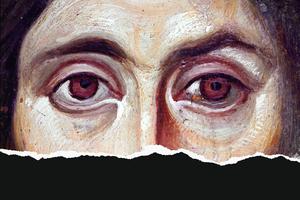Religious Freedom a Casualty of the Ideological Hijacking of Public Schools
COMMENTARY: Former Attorney General Bill Barr outlined three phases of ruination in a recent address.

Summer vacation is almost here. As my children finish the school year, the value of education is very much on my mind. Perhaps that’s why I was so struck by a recent — and quite remarkable — speech by former Attorney General Bill Barr. He is sounding an alarm: America’s public schools are being overtaken by progressive ideologues, and religious freedom is among its casualties.
The Alliance Defending Freedom recently honored Barr with its annual Edwin Meese III Award for Originalism and Religious Liberty. His acceptance speech is instructive and provocative. He said:
“We are rapidly approaching the point — if we have not already reached the point — at which the heavy-handed enforcement of secular-progressive orthodoxy through government-run schools is totally incompatible with traditional Christianity and other major religious traditions in our country.”
How did we get here? Barr identifies three phases.
In its first phase, the advocates of public schools agreed that religion was integral to education.
The second phase, in the latter part of the 20th century, was marked by a “relentless campaign of secularization intent on driving every vestige of traditional religion from the public square.” Our Judeo-Christian tradition was replaced with “trite talk of liberal values — be a good person; be caring.”
The third phase, which began just a few years ago, is no longer “secularization by subtraction.” On the contrary, it’s much more threatening:
“Now we see the affirmative indoctrination of children with a secular belief system and worldview that is a substitute for religion and is antithetical to the beliefs and values of traditional God-centered religion.”
He notes the bizarre case of a school district in Iowa that “taught transgenderism and homosexuality to students at all grade levels — including preschool.” The district’s “Black Lives Matter at School Week of Action” included giving students a coloring book page that teaches them: “Everyone gets to choose if they are a girl or a boy or both or neither or someone else, and no one else gets to choose for them.”
This is delusional. Twenty years ago, my two eldest children attended our neighborhood public school for kindergarten. They opted out of health class because I want these first talks about their bodies to happen at home. So they hung out in the library instead.
Today, many public schools in the U.S. offer no such provisions for objecting families. Barr notes that the Board of Education for Orange County, California, went so far as to issue an opinion that “parents who disagree with the instructional materials related to gender, gender identity, gender expression and sexual orientation may not excuse their children from this instruction.”
Not surprisingly, progressive ideology in schools goes far beyond gender and sexuality. The nonsense known as critical race theory has crept in, too. Barr describes it as “nothing more than the materialist philosophy of Marxism substituting racial antagonism for class antagonism.” And if that wasn’t enough, this new ideology “challenges the very legitimacy of the nation itself — to the point of explicitly attacking its founding documents, principles and symbols.”
Here’s a crucial point: The ideological hijacking of public schools disrupts the constitutional order, particularly when it comes to religious believers. “For the government to get into the business through public schools of indoctrination of students into secular beliefs systems that are directly contrary to the traditional religious beliefs of students and their families raises fundamental constitutional problems,” Barr notes. He goes on to make two interesting observations.
The first is that such indoctrination interferes with the free exercise of religion. “Nothing is more fundamental than the right of parents to pass religious faith to their children,” notes Barr. And the sort of indoctrination into alternative belief systems being done in our schools that are antithetical to those religious beliefs interferes with this most important parental right.
Barr’s second observation is provocative. “Things have also reached a point where the Establishment Clause is implicated,” he claims. He rightly observes that “secularism has been afforded the protection of the religion clauses,” but “it has generally not been subject to the prohibitions of the Establishment Clause.”
On the latter point, there is a certain attraction to conclude that there is a “constitutional double standard.” But protecting the Free Exercise Clause is different from guarding against a state-sponsored religion. And ideology by itself, no matter how fervent its adherents, is not religion.
Barr concludes his speech by offering a solution to the infiltration of progressive ideology into the country’s public schools. Public schools were intended to help unify Americans. Schools in the grip of secular progressivism, by contrast, “have taken on the opposite mission of separating us, of teaching unbridgeable differences, of dividing us into many different identities destined to be antagonistic.”
He correctly observes that “public funding of education does not require that instruction must be delivered by means of government-run schools.” A system of vouchers, he argues, allows “the student and the parents to choose the school — private, public, sectarian or non-sectarian — that best fits their needs and the dictates of their conscience.”
Both the Catholic Church and the U.S. Supreme Court recognize that parents are the primary educators of children. And after listening to the litany of troubling ideas taking hold in many public schools today, I am relieved that I have chosen to send my school-age children to private religious schools. I also know that access to vouchers would definitely help lighten the financial burden I carry, as well as encourage other parents to consider alternatives to public schools.
- Keywords:
- religious freedom
- ideology
- public schools
- public education
- andrea picciotti-bayer
- school choice
- u.s. education

















